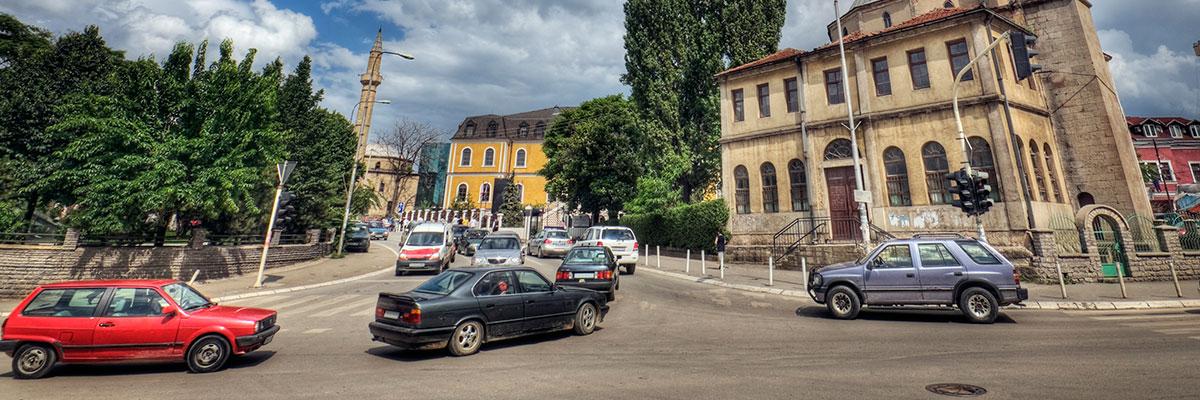Ethnographic Museum (Muzeu Etnologjik, Emin Gjiku complex)
A lovely traditional 18th century house set in a walled complex with several other buildings is the only original building left in the old bazaar area. Once owned by Emin Gjiku, a nickname for Emin Gjinolli, whose family owned the house, the complex was turned into a museum in 2006. Professional guides are at hand to give English-language tours of the traditional architecture typical for the region, and showing the separate guest and family areas of the house that are filled with exhibits on clothing, birth and burial rituals, handicrafts and more. The museum sells traditional gifts including white eggshell plies hats. Highly recommended.
Kosovo Museum
This pretty ochre-painted villa housing the Kosovo Museum was built by Austrians for the Turkish army in 1898, and was used by the Yugoslav national army until 1975. The museum used to have a rich collection of prehistoric objects uncovered in Kosovo - these were all spirited off to Belgrade just before the troubles started in 1998, and hundreds of archeological finds and ethnographic items yet have to be returned. The extensive permanent archaeology exhibition details life in the region in the Illyrian, Dardanian and Roman periods with excellent English-language texts, all accompanied by Philip Glass minimal music. Centre stage is the 6,000 year old Hynesha në Fron (Goddess on a throne) statue, found at "Tjerrtorja" in 1956 and returned to Pristina in 2002.
Kosova Art Gallery
Behind the national library, this relatively large exhibition building is made up of two exhibition halls covering almost 500 square metres and showcasing shows of mostly 2D work by local, and primarily young, artists. Owned and operated by the Ministry of Culture & Sports, the museum also does a lot of educational work with young children. In front of the entrance stands Pristina's most interesting public artwork - a constellation of metal beams jutting out over the footpath like mikado sticks.
National Theatre
Founded in 1946 in Prizren, the birthplace of all cultural things Albanian, the National Theatre puts on Albanian-language plays and shows. With help from the authorities and sponsors, the theatre has been revived after a difficult period of censorship, forced management and staff changes and a dictated repertoire between 1981 and 1999. During that period some directors and actors went underground to perform illegal plays, some performed at the Dodona theatre.
Cinema / Kino ABC
Kino ABC and its sister ABC-1 show Hollywood releases, documentaries and occasionally have film festivals. Find the English-language programme on their website: teatrikombetar.eu.
Bazaar
Pristina's liveliest area is without doubt the large bazaar, east of Ilir Konusheci Street. Although most of it was destroyed in the 1950s, it still retains the bustling atmosphere typical of all Balkan markets. All kinds of goods are for sale: fruit, vegetables, Albanian flags, cigarettes (stacked up in walls of cartons), kitchen utensils, car parts, dodgy mobile phones and more, making for a fascinating stroll. Many of the friendly traders are returned refugees and know German, Italian or English, and will be happy to strike up conversation.

